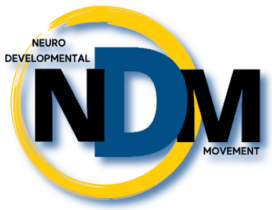by Emily Roberts
Neurotransmitters: Relationship to Trauma and Attachment
Attachment is one of the most important aspects of a child’s development; it is the essential factor in shaping their minds through interactions. Early deprivation, abuse, trauma, and dysfunctional attachment can disrupt a child’s brain development; thus their production and management of neurotransmitters. Research on abused and neglected children has indicated the devastating effects of maltreatment on the child’s growing brain; smaller brain size, decreased growth of the corpus callosum (connects the right and left sides of the brain) and impaired growth of inhibitory neurotransmitters, including GABA, that serve to calm the excitable emotional limbic structures. This is seen in brain imaging studies and through neurotransmitter testing. Even after children are introduced into safe and loving homes, the disrupted neurochemistry is still present.
Neurotransmitter levels are a blueprint for a child’s mood, behavior, and overall functioning. Continual research has shown that our early years create our brain’s destiny; as relationships with parent’s changes so do the children’s attachment. This means it is never too late to create a positive change in a child’s life. Through regulating neurotransmitter levels the ability to create a healthy bond with parents becomes much more feasible.
Inhibitory Neurotransmitters & Trauma
SEROTONIN is an inhibitory neurotransmitter – which means that it does not stimulate the brain. Adequate amounts of serotonin are necessary for a stable mood and to balance any excessive excitatory (stimulating) neurotransmitter firing in the brain. If you use stimulant medications or caffeine in your daily regimen – it can cause a depletion of serotonin over time. Serotonin also regulates many other processes such as carbohydrate cravings, sleep cycle, pain control and appropriate digestion. Low serotonin levels are also associated with decreased immune system function.
GABA is an inhibitory neurotransmitter that is often referred to as “nature’s VALIUM-like substance”. When GABA is out of range (high or low excretion values), it is likely that an excitatory neurotransmitter is firing too often in the brain. GABA will be sent out to attempt to balance this stimulating over-firing; it is used to calm the excitatory neurotransmitters. Impaired growth of GABA has been seen in brain imaging studies of abused and neglected children, due to the excessive amount of stress hormones released during these traumatic events.
DOPAMINE is a special neurotransmitter because it is considered to be both excitatory and inhibitory. Dopamine helps with depression as well as focus, which you will read about in the excitatory section.
TRAUMA inhibitory neurotransmitters are developed in infancy and over time especially through touch and having ones needs met; a baby cries to be fed, he is held and receives the milk he needs. However with neglect, wrongful touch, malnourishment, or being present for traumatic events, can sends mixed messages to the brain; therefore it is unable develop an optimal amount of these inhibitory neurotransmitters. This often leads to the inability for one to control their responses from excitatory neurotransmitters and contributes to children living in a state of fear and/or hyper-vigilance.
Excitatory Neurotransmitters & Trauma
DOPAMINE is our main focus neurotransmitter. When dopamine is either elevated or low – we can have focus issues such as not remembering where we put our keys, forgetting what a paragraph said when we just finished reading it or simply daydreaming and not being able to stay on task. Dopamine is also responsible for our drive or desire to get things done – or motivation. Stimulants such as medications for ADD/ADHD and caffeine cause dopamine to be pushed into the synapse so that focus is improved. Unfortunately, stimulating dopamine consistently can cause a depletion of dopamine over time.
NOREPINEPHRINE is an excitatory neurotransmitter that is responsible for stimulatory processes in the body. Norepinephrine helps to make epinephrine as well. This neurotransmitter can cause ANXIETY at elevated excretion levels as well as some “MOOD DAMPENING” effects. Low levels of norepinephrine are associated with LOW ENERGY, DECREASED FOCUS ability and sleep cycle problems.
EPINEPHRINE is an excitatory neurotransmitter that is reflective of stress.
This neurotransmitter will often be elevated when ADHD like symptoms are present. Long term STRESS or INSOMNIA can cause epinephrine levels to be depleted (low). Epinephrine also regulates HEART RATE and BLOOD PRESSURE.
Children who have endured neglect or trauma have utilized these neurotransmitters in order to get their needs met. This is a survival method, to be the loudest child in the orphanage, use aggression to fight off those that were hurting them, or stay awake in fear of the unknown.
Their inhibitory neurotransmitters were not fully developed and they are now running on excitatory neurotransmitter; unable to calm themselves down, or develop proper inhibitory support.

